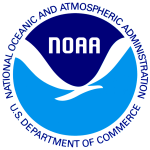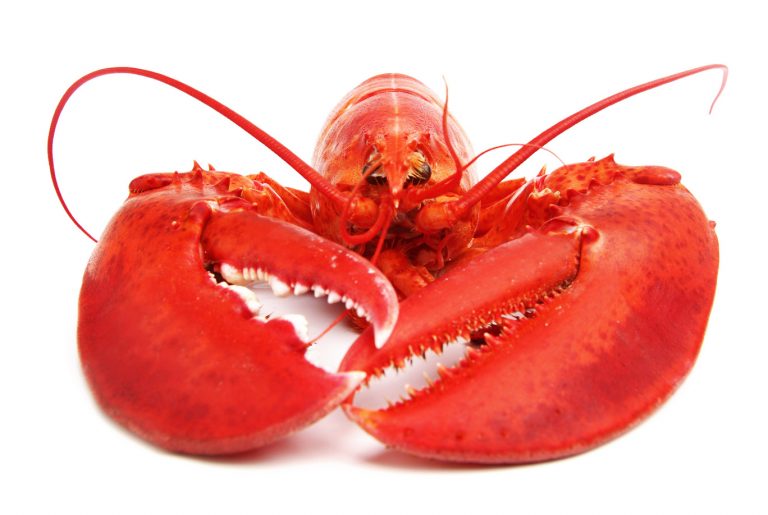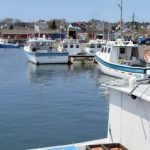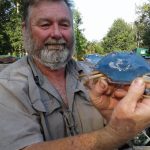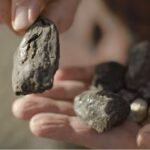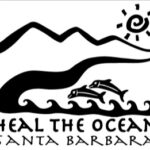Tag Archives: Lanny Dellinger
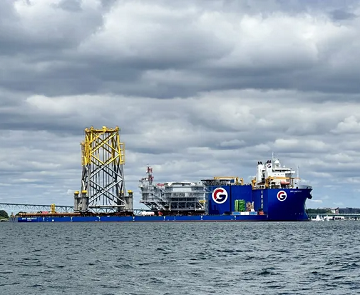
This board advises the state on offshore wind’s impacts on fisheries. They all just resigned.
All the members of the panel that advises state coastal regulators on the impacts of offshore wind on fisheries have resigned in protest of what they charge is a process that unfairly favors developers. A resignation letter signed by the nine members of the Fishermen’s Advisory Board was sent to the Coastal Resources Management Council Thursday night. “It has become abundantly clear that the Rhode Island CRMC has made deference to offshore wind developers its top priority regardless of the requirements of the Ocean SAMP, the cost to the environment, or the impacts to Rhode Island’s fishing industry,” they wrote, referring to the Ocean Special Area Management Plan, the state document that guides offshore wind permitting. >>click to read<< 07:47
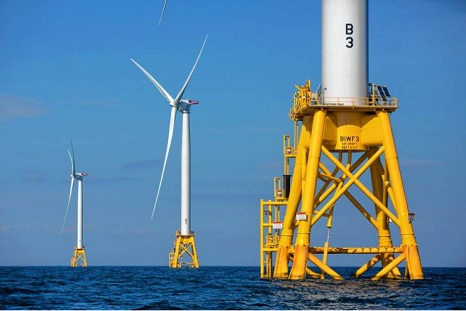
As Commerce Secretary, Raimondo to play key role in offshore wind.
In the selection of Gina Raimondo as the next U.S. Secretary of Commerce, the offshore wind industry would get a champion in Washington. What influence she could bring to bear for the emerging energy sector remains to be seen, but if confirmed to her new position in the Biden cabinet, Raimondo would oversee federal fisheries regulators who have raised some of the concerns about potential negative impacts of erecting what could be many hundreds of wind turbines in the ocean waters off southern New England. >click to read<09:45
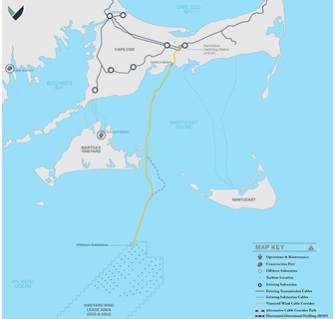
Offshore Wind Awaits Federal Environmental Reports
The latest industry initiative is the expansion of a cable factory in Charleston, S.C., where Paris-based Nexans plans to make some 620 miles of high-voltage power lines for the five wind projects under development by the utility Eversource and Danish energy company Ørsted. The companies declined to say how the five-year contract was granted. Nexans is also building a new cable-laying vessel with a 10,000-ton capacity.,,, The report was quickly criticized by representatives from the squid and scallop industry who said the 1-mile spacing between the turbines doesn’t improve safety and the layout restricts fishing. “This is the biggest screwup to hit our oceans ever,” said Dellinger, who is chairman of the Rhode Island Fishermen’s Advisory Board. >click to read< 16:58
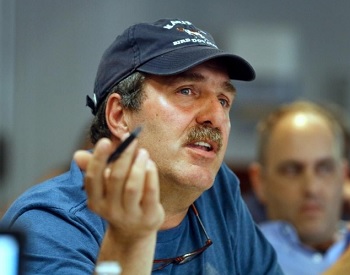
R.I. fishermen critical of wind farm plan
Developers Ørsted U.S. Offshore Wind and Eversource Energy say that they’ve taken into account the concerns of fishermen by configuring the wind farm’s up to 15 turbines from east to west with rows that are 1 nautical mile (about 1.2 miles) apart. The spacing from north to south, however, would be smaller, with either 0.8 or 1 mile between turbines.And that, according to fishing industry leaders and the Rhode Island coastal council, isn’t good enough. ,,,“I do have concerns. Hopefully this won’t turn out to be Vineyard Wind, part two,” said Lanny Dellinger, chairman of the which advises the Rhode Island coastal council. >click to read< 08:30
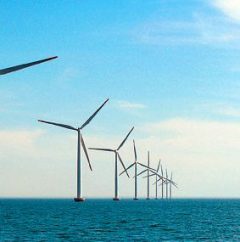
Vineyard Wind and R.I. strike bargain. R.I. Fishery Advisory Board chairman doesn’t like settlement. Nobody does.
“I just think it was a [expletive] deal for the industry, but it’s the deal that we got,” Newport, R.I. lobsterman Lanny Dellinger, chairman of the Rhode Island Fisheries Advisory Board, told The Times.
“I just don’t think the negotiations were set up fairly,” he said.,, Richard Fuka, Rhode Island Fishermen’s Alliance president, said squid fishermen, who comprise the most lucrative part of the Rhode Island fishing industry, weren’t represented on the board and were therefore cut out of negotiations. When asked if Vineyard Wind was aware squid fishermen may have not had a seat at the table for negotiations, Vineyard Wind spokesman Scott Farmelant declined to talk about any part of the deal and referred The Times to the Vineyard Wind release. >click to read<16:20

R.I. fishermen, Vineyard Wind reach deal on compensation
A Rhode Island fishing board on Saturday voted in favor of a revised compensation offer from offshore wind developer Vineyard Wind in a decision that boosts the New Bedford company’s chances of securing a key approval from state coastal regulators later this week. In a unanimous vote at the special meeting, the Fishermen’s Advisory Board accepted the new offer that includes $4.2 million in payments over 30 years for direct impacts to commercial fishermen from Vineyard Wind’s 84-turbine wind farm proposed in Rhode Island Sound, as well as the creation of a $12.5-million trust set up over five years that could be used to cover additional costs to fishermen resulting from the project The Rhode Island Coastal Resources Management Council is now set to vote Tuesday night on whether it believes the $2-billion project is consistent with state coastal activities, including fishing. >click to read<19:25

Fishermen Want More Time to Negotiate Over Wind
Lanny Dellinger, a Newport, R.I.-based lobsterman and chairman of the Fishermen’s Advisory Board, said fishermen are being rushed to accept a compensation offer for the harm they say will be caused by the Vineyard Wind offshore project. “It’s like being pushed into the (real estate) closing without seeing the appraisal,” Dellinger said.
There’s no doubt that the project developer is in a hurry. Vineyard Wind needs approval from the Rhode Island Coastal Resources Management Council (CRMC) soon so that construction can begin on the 84-turbine project and qualify for a federal tax credit. >click to read<10:38
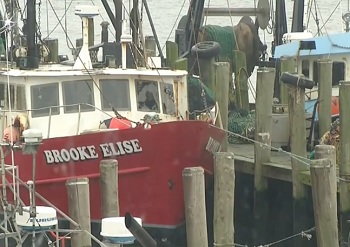
RI fishing professionals worry offshore wind farm would harm industry
Fishermen across the Ocean State are worried a proposed offshore wind farm in the Rhode Island Sound would harm the state’s fishing industry. The Coastal Resources Management Council will vote on Jan. 22 whether to approve Vineyard Wind’s proposal to install 84 wind turbines off of Martha’s Vineyard to supply power to Massachusetts. “This is a losing proposition for the fishing industry- big time,” said Lanny Dellinger, who is the chair of the state’s fisheries advisory board. >click to read<20:33
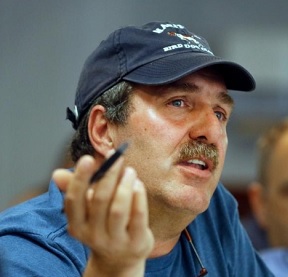
Vineyard Wind, R.I. fishermen still at odds over turbines
At issue is minimizing impacts to fishing grounds for squid, lobster and other species that are critical to Rhode Island fishermen. Nearly four months into a review of its proposal by Rhode Island coastal regulators, Vineyard Wind has been unable to allay fears that its proposed offshore wind farm of up to 100 turbines would harm the state’s fishing industry. With a key approval from the Coastal Resources Management Council at stake, the New Bedford-based company has agreed to a two-month extension in an attempt to bridge the divide with agency staff and Rhode Island fishermen over the $2-billion project that would be built in 250 square miles of ocean south of Martha’s Vineyard. >click to read<23:54
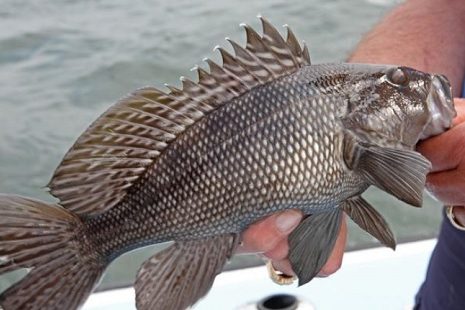
Black sea bass surge off R.I.
Scientists tell us that some fish will be winners and others losers as oceans warm. In Rhode Island, count lobster, silver hake and winter flounder among the losers, their numbers plummeting as climate change drives water temperatures higher. On the list of winners so far are squid, summer flounder, butterfish. And black sea bass. The population of the dusky-colored fish with striking blue accents has historically been strongest off the mid-Atlantic Coast, but over the past decade or so its numbers have spiked off New England and it is becoming a more important catch for the region’s fishermen. How they are managed will have important implications not only for those fish but for lobsters and other key species in the ocean ecosystem. >click to read<12:30
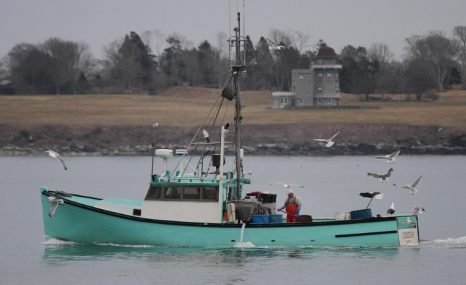
Fishermen: Narragansett Bay cleanup might be doing harm
Narragansett Bay is cleaner and clearer than it’s been in decades. But after huge strides in treating wastewater and controlling storm runoff, some are asking a question that would have been unthinkable just a few years ago about what is arguably Rhode Island’s most valuable natural resource: Is the Bay too clean? Fishermen are raising the issue after seeing steep declines in numbers of flounder, lobster and other species that were once so abundant that they formed the bedrock of their industry. It has gotten bad enough that lobsterman Al Eagles says that he and others now call the Bay “Chernobyl,” a reference to the site of the devastating Soviet-era nuclear disaster. click here to read the story 09:20
Waste Water Treatment Plants: Once home to thriving aquaculture, Great Bay is under great strain – You can see it in the lack of eelgrass beds that used to cover thousands of acres of tidal flats. These new treatment plants have filtered or poisoned most of the nutrients from the Piscataqua River and the many other rivers that serve their municipalities that dump their now super-treated effluent into the tidal water, now so sterile and lacking in nutrients and full of poison that plants and animals cannot survive. click here to read the story


































